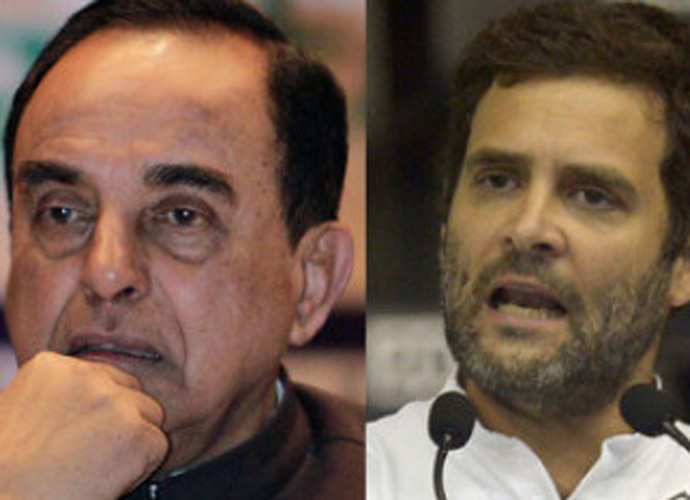SC's verdict on criminal defamation is a mistake

It's not often you get Subramanian Swamy, Arvind Kejriwal and Rahul Gandhi to agree on something. The three men were on the same side in a petition to make defamation a civil not criminal offence.
The Supreme Court disagreed. The law of criminal defamation stays. It is another error in a litany of questionable decisions by the apex court over the past few years.
Liberal societies have a simple rule to deal with defamation. Freedom of expression is not absolute. It is subject to reasonable restraints. But those restraints must pass the "smell" test: your freedom ends where my nose begins.
Offending is fine. Dissent is fine. Lampooning is fine. Caricaturing is fine. Tastelessness is fine. What's not fine is violence, threatening violence, inciting hatred and abusing with intent to cause harm.
All these are covered under several sections of the Indian Penal Code (IPC) and the Criminal Procedure Code (CrPC). Defamation needs a different red line. Once that red line is crossed, defamation becomes criminal intimidation. The CrPC is equipped to deal with it using an array of criminal charges.
But defamation, written or spoken, is not criminal intimidation till it crosses the red line of violence, the threat of violence, incitement to hatred or abuse with intent to cause mental or physical harm.
Defamation that does not cross these red lines is a civil offence. If it is not - and the Supreme Court says it is not - it can make "reasonable restrictions" to free speech envisioned in the Constitution unreasonable restrictions to free speech.
 |
| Besides Arvind Kejriwal, the verdict will also impact Subramanian Swamy and Rahul Gandhi. |
No liberal democracy can accept such a low standard of the definition of free speech. The media is often the first victim. The fear of a criminal defamation case can act as a silent censor. The threat of a criminal suit can be a bigger threat to freedom of expression than the often exaggerated threat defamation poses to individual reputations.
If liberal society has to err, it must err on the side of openness to, and tolerance of, criticism. The larger public good supersedes the "defamed" individual's right not to be defamed because he still retains the right to civil court action. By "criminalising" defamation, the court has sided with the lesser, not the larger, public good.
The growth of social media has been a boon for free speech. Voiceless people now have a platform. The potential for abuse obviously exists but it has to be dealt with at the level of the platform - as Twitter has done with its new policy of taking quick action against abusers. Much more needs to be done to check online abuse, especially of women, but that cannot be a pretext for imposing "unreasonable restrictions" on free speech, verbal or written.
In a cover story titled "Free Speech Under Attack" in its issue dated June 4, 2016, The Economist argues: "In America the White House asked Google, which owns YouTube, to 'review' whether (the video) 'The Innocence of Muslims' violated YouTube's guidelines against hate speech. The company decided that it did not, since it attacked a religion (ie, a set of ideas) rather that the people who held those beliefs. The White House did not force Google to censor the video; indeed, thanks to America's Constitutional guarantee of free speech, it had no legal power to do so.
"Many countries have introduced or revived laws against 'hate speech' that are often broad and vague. In France, Brigitte Bardot, an actress, has been convicted five times of incitement to racial hatred because, as an animal lover, she complains about halal slaughter methods. In India, section 153A of the criminal code, which was introduced under British rule, punishes with up to three years in jail those who promote disharmony 'on grounds of religion, race, place of birth, residence, language, caste or community or any other ground whatsoever'.
"Such laws are handy tools for those in power to harass their enemies. And far from promoting harmony between different groups, they encourage them to file charges against each other. This is especially dangerous when cynical politicians get involved. Those who rely on votes from a certain group often find it useful to demand the punishment of someone who has allegedly insulted its members, especially just before an election. For example, when an Indian intellectual called Ashis Nandy made a subtle point about lower castes and corruption at a literary festival in 2013, local politicians professed outrage and he was charged under India's Prevention of Atrocities Act."
Countries like China, Russia, Turkey and Saudi Arabia have harsh laws that curtail free speech. Activists are imprisoned for criticising the government. Bloggers in Bangladesh meet an even grimmer fate.
The apex court must revisit its decision on allowing defamation to remain a criminal offence. A balance must be found between an individual's right to not be unfairly attacked by written or spoken word and the public good such an act may perform.
That balance today tilts heavily in favour of the "defamed" individual who may, for example, be guilty of corruption, but uses the law of criminal defamation to ward off public scrutiny. The balance must shift in favour of what is clearly the larger good: public interest. That is best served by decriminalising defamation.

